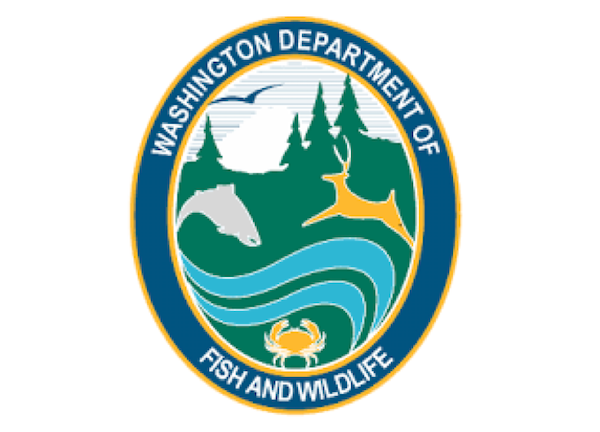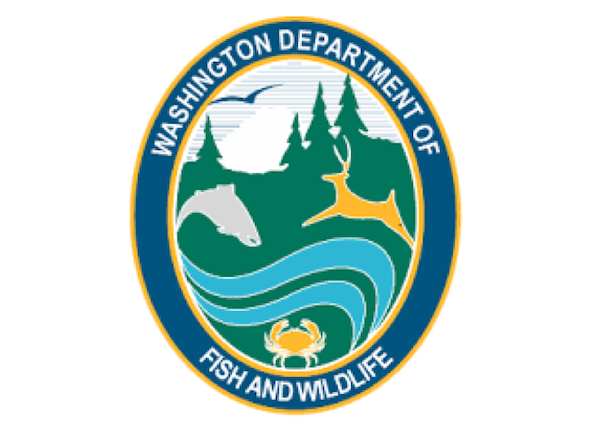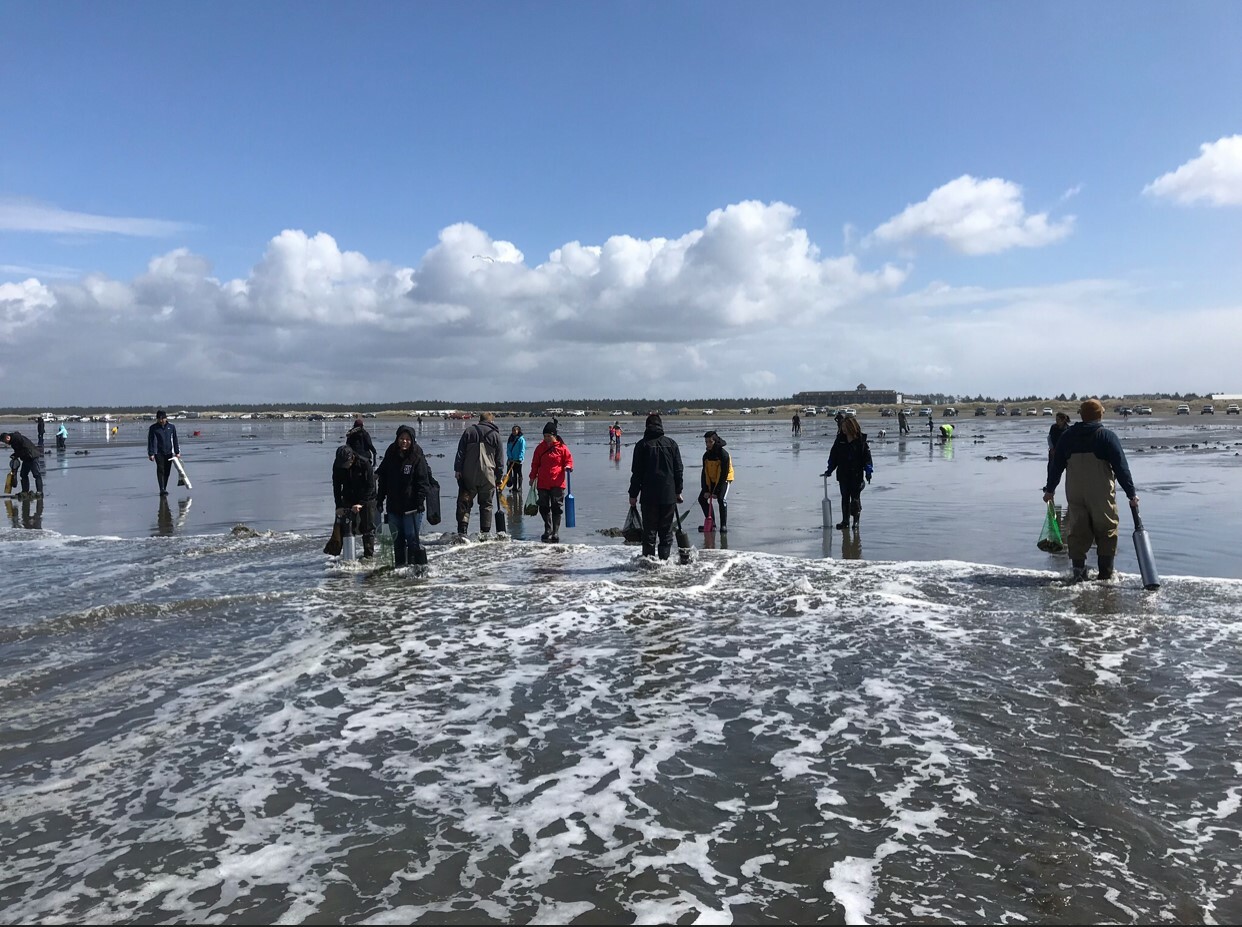Idaho Fish Report
Recreational spot shrimp fishery opens May 25 in much of Puget Sound

by WA Department of Fish & Wildlife Staff
4-15-2022
Website
OLYMPIA – Many areas of Puget Sound will open for recreational spot shrimp fishing beginning May 25, shellfish managers with the Washington Department of Fish and Wildlife (WDFW) announced today.
“The selected dates reflect a conscious effort to offer opportunities to harvest while keeping participants distributed and reducing the chance of exceeding recreational quotas,” said Katelyn Bosley, the WDFW Puget Sound crustacean biologist.
Also known as prawns, spot shrimp are the largest shrimp in Puget Sound and may grow up to nine inches in length, and the popular spot shrimp fishery is an exciting spring-time activity.
Shrimpers are encouraged to check the weather beforehand and ensure your vessel is safely working to participate. Before launching out for a day on the water, check with local access ramps and marinas for potential closures or fee changes. Also allow extra time for launching your boat and show courtesy to others at the boat ramps.
In all areas, the daily limit is 80 spot shrimp; with a total daily weight limit of 10 pounds (whole shrimp) all species combined. Starting this season, shrimpers who retain only spot shrimp may remove and discard the heads while in the field and before returning to shore – previously all shrimp heads were required to be retained after June 1. Shrimpers retaining any shrimp species other than spot shrimp must continue to retain the heads of all species (including spot shrimp) until finished and on shore to verify compliance with the 10-pound daily limit.
All shrimp -- including spot, dock, coonstripe, and pink shrimp -- can be kept as part of the daily limit. However, because only larger-mesh (1 inch) traps are allowed during the seasons announced here, most harvest will be spot shrimp.
A valid 2022-2023 combination license, shellfish license, or Fish Washington license is required to participate in all shrimp fisheries. More information on recreational shrimp seasons, and a description of the marine areas, is available on WDFW's recreational shrimp fishing website.
Recreational spot shrimp catches in 2021 exceeded the annual quota in some areas, reducing the available catch this season in places like Discovery Bay, Hood Canal, and particularly Elliott Bay. Limiting the fishery in Elliott Bay to three hours in 2021 had little impact on the catch and resulted in a harvest overage large enough that it will preclude a 2022 fishery.
“Elliott Bay is a productive shrimping ground that sees a lot of participation each year,” Bosley said. “Following several years of harvest overages and resulting quota reductions, keeping the fishery closed in Elliott Bay should allow us to open next year with a full quota allotment.”
2022 Puget Sound recreational spot shrimp seasons are as follows:
- Marine Area 4 east of the Bonilla-Tatoosh line and Marine Area 5 (western Strait of Juan de Fuca): Open May 25 each day until further notice for all shrimp species. Daylight hours only.
- Marine Area 6 (Port Angeles Harbor, eastern Strait of Juan de Fuca, excluding the Discovery Bay Shrimp District): Open May 25-28, June 9-11, June 23-25, July 7-9, and July 21-23. Daylight hours.
- Marine Area 6 (Discovery Bay Shrimp District): Open on May 25 from 9 a.m. to 1 p.m. only.
- Marine Area 7 South (Iceberg Point, Point Colville, Biz Point, Salmon Bank) and Marine Area 7 East (northern Rosario Strait, Bellingham Bay, Sucia and Matia islands, Strait of Georgia): Open May 25-28 and June 9-11. Daylight hours.
- Marine Area 7 West (San Juan Channel, Speiden Channel, Stuart, and Waldron islands): Open May 25-28, June 9-11, June 23-25, and July 7-9. Daylight hours.
- Marine Areas 8-1 (Saratoga Passage, Deception Pass) and 8-2 (Port Susan, Port Gardner, Everett): Open on May 25 and June 9 from 8 a.m. to noon only. Note: Divers may take shrimp by hand or hand-held device from 7 p.m. until midnight on May 25 and June 9 in Marine Area 8-2.
- Marine Area 9 (Edmonds, Port Townsend Bay, Admiralty Inlet): Open on May 25 from 8 a.m. to noon only.
- Marine Area 10 (Elliott Bay): Will remain closed for 2022 (this is the portion of Marine Area 10 east of a line from West Point to Alki Point).
- Marine Area 10 (outside Elliott Bay): Open May 25 from 8 a.m. to noon (this is the portion of Marine Area 10 west of a line from West Point to Alki Point).
- Marine Area 11 (Tacoma-Vashon Island): Open May 25 from 8 a.m. to noon.
- Marine Area 12 (Hood Canal Shrimp District): Open on May 25, May 28, June 9, and June 23 from 9 a.m. to 1 p.m. only.
- Marine Area 13 (South Puget Sound, Carr Inlet): Closed for spot shrimp harvest this season due to continued low abundance.
Additional dates and times may be announced if enough quota remains after the initial fishing days listed above. WDFW reminds shrimpers that traps can be set one hour before official sunrise during any open period in the marine areas without specified harvest hours. These include marine areas 4, 5, 6 (except for the Discovery Bay Shrimp District), 7 East, 7 South, and 7 West. Traps must be removed from the water in these same areas by one hour after sunset at the end of an open period. The start and end times for all other areas are listed above.
Seasons for non-spot shrimping (dock, coonstripe, and pink shrimp only) will begin later this year and will be announced separately. During those seasons ½ inch mesh pots are allowed but all spot shrimp are required to be released immediately.
Shrimp anglers are reminded to follow Be Whale Wise practices to help protect endangered Southern Resident killer whales (SRKW). Recreational vessels must stay at least 300 yards from SRKWs and at least 400 yards out of their path or behind the whales. Vessels must also reduce their speed to seven knots within a half-mile of a Southern Resident killer whale. Anglers are also encouraged to watch for the Whale Warning Flag, an optional tool from the San Juan County Marine Resources Committee, that lets others know that there might be whales nearby. If you see the flag, slow down and follow guidelines. For more details about steps anglers can take to keep the whales – and themselves – safe, visit BeWhaleWise.org.
The Washington Department of Fish and Wildlife works to preserve, protect, and perpetuate fish, wildlife and ecosystems while providing sustainable fish and wildlife recreational and commercial opportunities.


